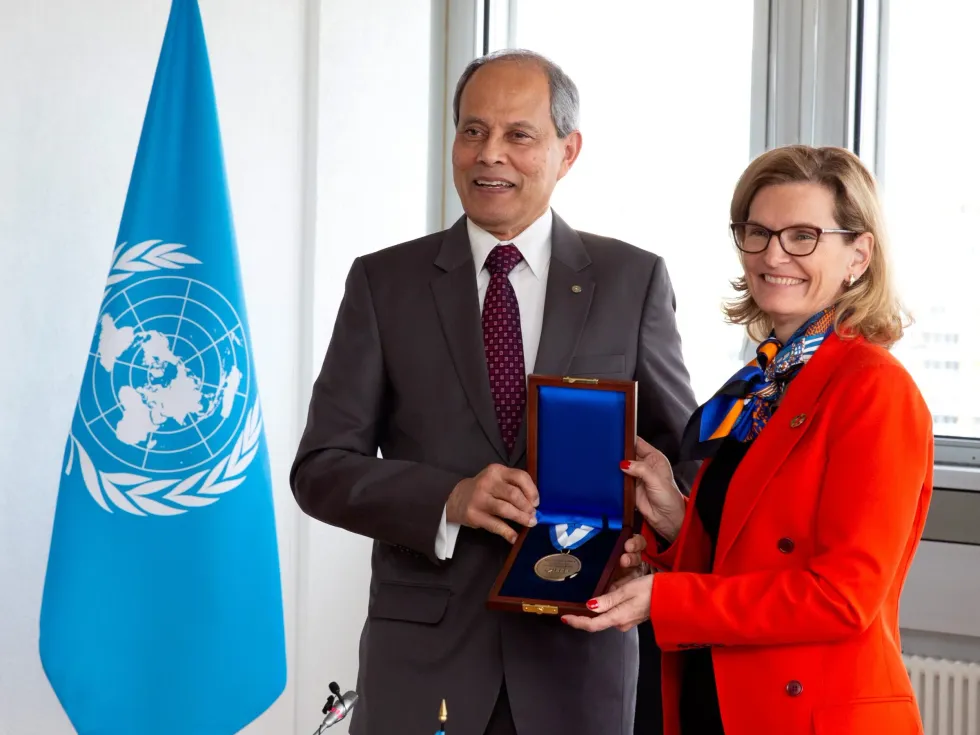At IEEE, we know that the advancement of science and technology is the engine that drives the improvement of the quality of life for every person on this planet. Unfortunately, as we are all aware, today’s world faces significant challenges, including escalating conflicts, a climate crisis, food insecurity, gender inequality, and the approximately 2.7 billion people who cannot access the Internet.
Bridging the divide
The COVID-19 pandemic exposed the digital divide like never before. The world saw the need for universal broadband connectivity for remote work, online education, telemedicine, entertainment, and social networking. Those who had access thrived while those without it struggled. As millions of classrooms moved online, the lack of connectivity made it difficult for some students to participate in remote learning. Adults who could not perform their job virtually faced layoffs or reduced work hours.
The pandemic also exposed weaknesses in the global infrastructure that supports the citizens of the world. It became even more apparent that vital communications, computing, energy, and distribution infrastructure was not always equitably distributed, particularly in less developed regions.
2023 IEEE President’s Award

ITU
I had the pleasure of presenting the 2023 IEEE President’s Award to Doreen Bogdan-Martin, secretary-general of the International Telecommunication Union, on 28 March, at ITU’s headquarters in Geneva. The award recognizes her distinguished leadership at the agency and her notable contributions to the global public.
It is my honor to recognize such a transformational leader and IEEE member for her demonstrated commitment to bridging the digital divide and to ensuring connectivity that is safe, inclusive, and affordable to all.
Nearly 45 percent of global households do not have access to the Internet, according to UNESCO. A report from UNICEF estimates that nearly two-thirds of the world’s schoolchildren lack Internet access at home.
This digital divide is particularly impactful on women. who are 23 percent less likely than men to use the Internet. According to the United Nations Educational, Scientific and Cultural Organization, in 10 countries across Africa, Asia, and South America, women are between 30 percent and 50 percent less likely than men to make use of the Internet.
Even in developed countries, Internet access is often lower than one might imagine. More than six percent of the U.S. population does not have a high-speed connection. In Australia, the figure is 13 percent. Globally, just over half of households have an Internet connection, according to UNESCO. In the developed world, 87 percent are connected, compared with 47 percent in developing nations and just 19 percent in the least developed countries.
Benefits of technology
As IEEE looks to lead the development of technology to tackle climate change and empower universal prosperity, it is essential that we recognize the role that meaningful connectivity and digital technology play in the organization’s goals to support global sustainability, drive economic growth, and transform health care, education, employment, gender equality, and youth empowerment.
IEEE members around the globe are continuously developing and applying technology to help solve these problems. It is that universal passion—to improve global conditions—that is at the heart of our mission, as well as our expanding partnerships and significant activities supporting the achievement of the U.N. Sustainable Development Goals.
One growing partnership is with the International Telecommunication Union, a U.N. specialized agency that helps set policy related to information and communication technologies. IEEE Member Doreen Bogdan-Martin was elected as ITU secretary-general and took office on 1 January, becoming the first woman to lead the 155-year-old organization. Bogdan-Martin is the recipient of this year’s IEEE President’s Award [see sidebar].
IEEE and ITU share the goal of bringing the benefits of technology to all of humanity. I look forward to working closely with the U.N. agency to promote meaningful connectivity, intensify cooperation to connect the unconnected, and strengthen the alignment of digital technologies with inclusive sustainable development.
I truly believe that one of the most important applications of technology is to improve people’s lives. For those in underserved regions of the world, technology can improve educational opportunities, provide better health care, alleviate suffering, and maintain human dignity.
Technology and technologists, particularly IEEE members, have a significant role to play in shaping life on this planet. They can use their skills to develop and advance technology—from green energy to reducing waste and emissions, and from transportation electrification to digital education, health, and agriculture. As a person who believes in the power of technology to benefit humanity, I find this to be a very compelling vision for our shared future.
Please share your thoughts with me: president@ieee.org.
—SAIFUR RAHMAN
IEEE president and CEO
This article appears in the June 2023 print issue as “Connecting the Unconnected.”
- IEEE Celebrates Engineering Pioneers and Emerging Technologies ›
- U.N.’s ITU Secretary-General Receives IEEE President’s Award ›
- IEEE President’s Note: Making IEEE a Force for Change ›
- IEEE President’s Note: Young Technologists Grow Their Careers With IEEE - IEEE Spectrum ›
- President’s Note: Forging Partnerships will Sharpen IEEE’s Edge - IEEE Spectrum ›



